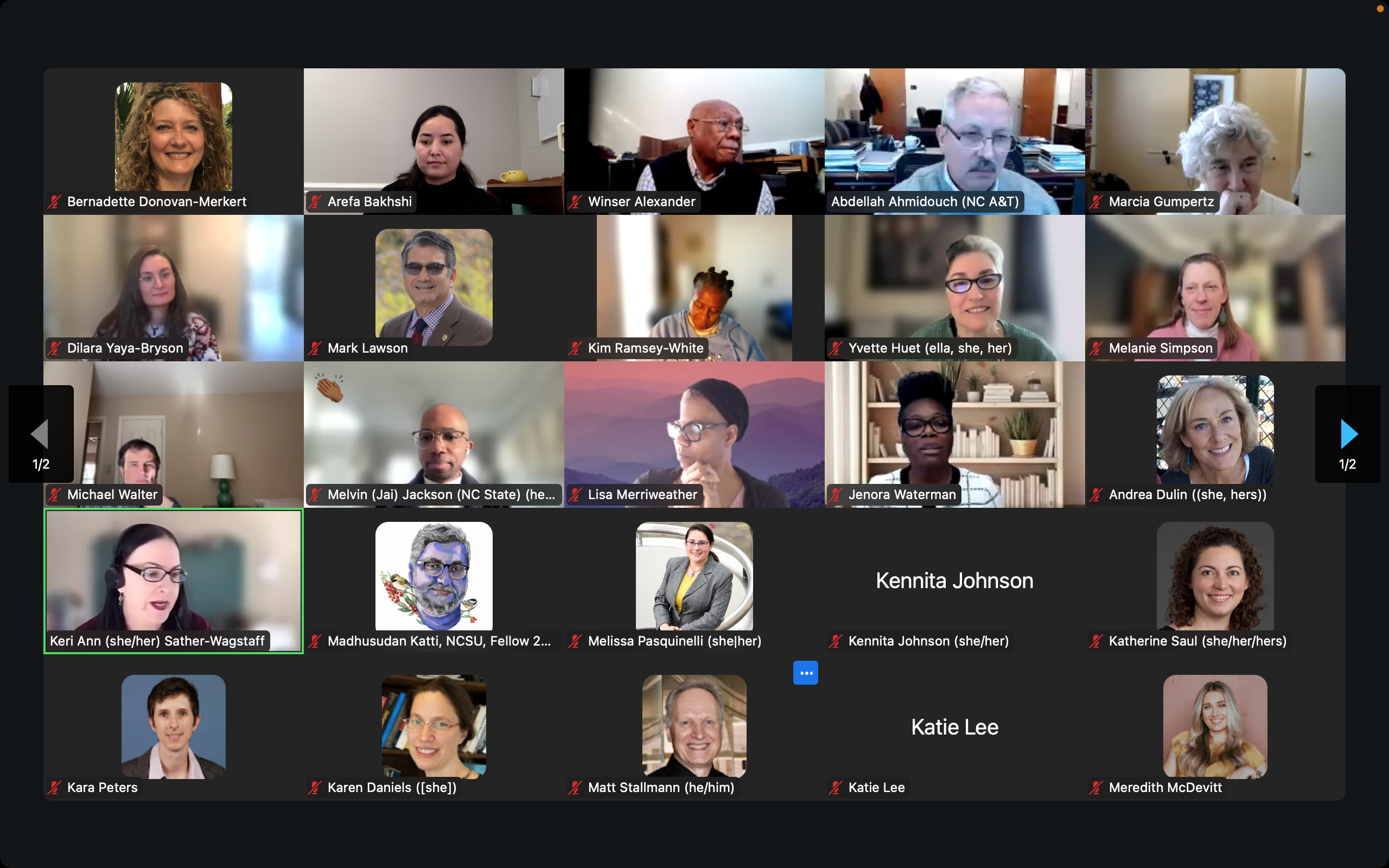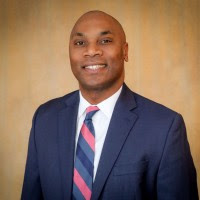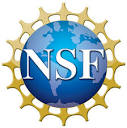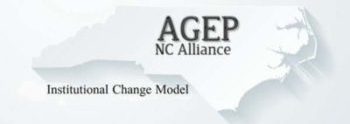2025 Winter Alliance Meeting
January 22, 2025

Previous Meetings and Webinars
AGEP-NC 2025 Winter Alliance Meeting
Zoom Meeting
Agenda:
- 10:00 AM – 10:30 AM Registration
- 10:30 AM – 11:30 AM Keynote Speaker: Dr. Mark A. Lawson; Director, Presidential Postdoctoral Fellows Program at the University of California
- 11:30 AM -12:00 PM The Future Direction of AGEP: Dr. Keri Ann Sather-Wagstaff; Program Director at the National Science Foundation
- 12:00 PM – 1:15 PM Round table discussion
- 1:15 PM – 2:00 PM Hearing from our fellows
- NC State: Dr. Kate Saul
- UNC Charlotte: Dr. Michael Walter
- NC A&T: Dr. Jenora Waterman
Friday, June 28, 2024
10:30 AM – 3:00 PM
UNC Charlotte Student Union Room 200
Agenda
11:00 AM – 12:00 PM | Keynote | Dr. Beronda Montgomery
12:00 PM – 1:00 PM | Lunch/ Round Table Discussion
1:00 PM – 1:30 PM | Round Table Report Back
1:30 PM – 2:15 PM | AGEP-NC Alliance Dissemination Efforts
2:15 PM – 2:55 PM | Campus Updates
2:55 PM – 3:00 PM | Closing Remarks |
2023/24 Winter Alliance Meeting
January 24, 2024 | 11:30 am – 4:00 pm | Greensboro, NC
Theme: Continuing Progress Toward Our Goals in the Current Legal Climate
Agenda
- 11:30 | Registration and Lunch
- 12:15 | Welcome!
- Ajit Kelkar | Professor, Mechanical Engineering
- 12:45 | Keynote Address
- Introducing Keynote Speaker
- Yvette Huet | Director of ADVANCE Faculty Affairs and Diversity Office and Professor, Applied Physiology, Health and Clinical Sciences
- Keynote Speaker
- Andre Lindsay, Senior Associate General Counsel
- Presents: How do we continue to progress toward our goals in the new legal climate?
- Introducing Keynote Speaker
- 1:30 | Roundtable Discussion
- How/what can we do given the information we have heard in the Keynote
- Facilitator:
- Melanie Simpson | Professor and Head, Molecular and Structural Biochemistry
- Table Leads:
- Jeff Joines | Associate Dean, Wilson College of Textiles
- Erin Sills | Professor and Head, Forestry and Environmental Resources
- Frederick Ferguson | Professor and Chair, Mechanical Engineering
- Alesia Ferguson | Professor and Chair, Built Environment
- Christine Richardson | Chair, Biological Sciences
- Bernadette Donovan-Merkert | Interim Dean, College of Science
- 2:15 | Break
- 2:30 | Update on AGEP-NC survey results and evaluation
- Cathy Brawner | President Research Triangle Educational Consultants
- Amy Germuth | President, EvalWorks
- 3:15 | Panel of Deans: College Actions and Plans
- Abdellah Ahmidouch, College of Science and Technology
- Bojan Cukic, College of Computing and Informatics
- Jim Pfaendtner, College of Engineering
- 3:45 | Closing
- 4:00 | Goodbye!
- Marcia Gumpertz | Professor Emerita, Statistics
- Marcia Gumpertz | Professor Emerita, Statistics
AGEP-NC Summer Alliance Meeting
9:00 am – 2:30 pm
NC State University, Witherspoon Student Center
Agenda:
- 9:00-9:15 Welcome, introductions, meeting goals
- 9:15-10:15 Keynote address: James Holly; Jr. Assistant Professor, Mechanical Engineering, University of Michigan View video
- 10:15-10:30 Break
- 10:30-11:05 Rob Santos, Director of the US Census Bureau, with introduction by Leonard Stefanski, NCSU Alumni Distinguished Professor of Statistics Listen to address
- 11:05-11:50 Department Plan Showcase and Discussion, Recognition of Cohort III Fellows. Presentation of plans:
- 11:50-12:45 Lunch.
- 12:45-2:15 EAB, SLC, AGEP-NC Fellows roundtable discussion: Thoughts for the coming year
- 2:15-2:30 Closing remarks
- 10:00-10:15: Welcome, Introductions, and Meeting Goals
- 10:15-10:55: Keynote Address: Reviewing Curriculum to Better Support Students from Underrepresented Groups by Tehia Glass
- 10:55-11:15: Q&A
- 11:15-11:30: Break
- 11:30-12:15: Lunch
- 12:15-1:15: Speaker: Presentation of Evaluation Data: Pre and post-result from Cohorts 1 and 2
- 1:15-1:45: Fellow’s Presentation by Adam Reitzel
- 1:45-2:00: Closing Remarks
- Videos of conference_1
- Videos of conference_2
AGEP-NC Summer 2022 Alliance Meeting
Wednesday, June 29, 2022
O. Henry Hotel, Greensboro, NC
Agenda
- 9:30-10:00 Breakfast and Welcome
- 10:00-10:30 Overview and 2022 AGEP-NC Alliance Updates
- 10:30-11:15 Keynote: Promoting Diversity in the Professoriate: Individual and Organizational Approaches. Dr. Jabbar Bennett, Vice President and Chief Diversity Officer, Michigan State University. Slides
- 11:15-11:30 Break
- 11:30-12:15 Concurrent Sessions
- AGEP-NC Cohort 2 Fellows and Evaluation Team Focus Groups
- Input and Feedback from AGEP-NC Community and Advisory Boards to Leadership Team
- 12:15-1:15 Lunch and Recognition of Cohort 2 AGEP-NC Fellows
- 1:15-2:30 Institutionalization: University Leaders and External Advisory Board
- 2:30-2:45 Break
- 2:45-3:30 Highlights of AGEP-NC Fellows’ Department Plans
- 3:30-3:45 Wrap up and conclusion
Featured Speaker
 Jabbar R. Bennett, PhD, Vice President and Chief Diversity Officer Michigan State University
Jabbar R. Bennett, PhD, Vice President and Chief Diversity Officer Michigan State University
Promoting Diversity in the Professoriate: Individual and Organizational Approaches
Dr. Bennett works to advance MSU’s diversity, equity and inclusion strategic priorities along with staff in the Office for Institutional Diversity and Inclusion and partnership among senior executives, deans, faculty, staff, students and alumni. Bennett is also a professor of medicine in the College of Human Medicine.
Prior to joining MSU in December 2020, Bennett served as the inaugural associate provost for diversity and inclusion, and chief diversity officer at Northwestern University. Previously, he worked as associate dean of the Graduate School, and associate dean for diversity in the Division of Biology and Medicine at Brown University.
Bennett received a bachelor’s degree in biology and a minor in Spanish from North Carolina Agricultural and Technical State University and earned a doctoral degree in biomedical sciences from Meharry Medical College. Bennett completed postdoctoral research training at Harvard Medical School and is an alumnus of the Harvard University Administrative Fellows Program and Massachusetts Education Policy Fellowship Program.
Webinar: Using Evaluation for Decision Making and Improvement
Leslie Goodyear, Education Development Center
Thursday, March 31, 2022
12:30-1:30
In this webinar, Using Evaluation for Decision Making and Improvement, Dr. Goodyear will discuss ways Alliance teams and faculty can collaborate with evaluators to use data to inform and improve design and implementation, and document and demonstrate outcomes. There will be plenty of time for questions and conversation, and she will share resources as well.
Friday, January 14, 2022. Virtual via Zoom
Presentations
- The importance of Identity in the Success of Students from Minoritized Communities. Manuel Pérez-Quiñones, Professor of Software and Information Systems, UNC Charlotte. Video Recording
- The Language of Othering: Unlearning the ABCs. Lisa Merriweather, Professor of Adult Education, UNC Charlotte. Video Recording
Monday, July 12, 2021. Virtual via Zoom
Presentations and Workshops
- Opening Remarks from NSF. Karen Marrongelle, Assistant Director, Education and Human Resources, NSF. Youtube link
- Race Really Matters. David Asai, Senior Director, Science Education, Howard Hughes Medical Institute. Youtube link
- I. The Absence of Diversity Hurts Everyone; II. Accountability. Karen L. Dace, Vice Chancellor, Division of Diversity, Equity and Inclusion, IUPUI. Youtube link
- Showcase of AGEP-NC Faculty Fellows’ Department Plans for Making Changes to Policies and Practices to Promote the Success of URM Doctoral Students. Youtube Link
Thursday, May 20, 2021.
A Model for Dramatically Increasing Diversity at the PhD Level in STEM
Keivan Gaudalupe Stassun, Stevenson Professor of Physics and Astronomy, Vanderbilt University
Abstract: This talk will discuss how partnerships with minority-serving institutions, such as the Fisk-Vanderbilt Masters-to-PhD Bridge Program which he co-directed for more than 10 years, can help to achieve the goal of increasing STEM diversity at the doctoral level. During the discussion, Stassun will summarize three core strategies: (1) replacing the GRE in admissions with indicators that are more predictive of long-term success; (2) partnering with a minority-serving institution for student training through collaborative research; and (3) using the master’s degree as a deliberate steppingstone to the PhD, with a wraparound mentoring model. Stassun will draw on his experiences as a nationally leading voice for diversity in STEM, including as a member of the National Science Foundation’s Committee on Equal Opportunity in Science and Engineering, and as a member of multiple National Academies studies on Effective Mentoring in STEM and Promising Practices for Addressing Underrepresentation in STEM. The session will conclude with a mentoring model and toolkit which may be used to support the success of all PhD students. This presentation is part of the External Advisory Board webinar series.
Friday, January 15, 2021. Virtual via Zoom
Keynote address: Strategies for Planning, Implementing and Evaluating Department DEI Initiatives. Ayesha Boyce, UNC Greensboro. Video of the Presentation
Abstract:
University department diversity, equity, and inclusion (DEI) initiatives are often well-intentioned but can lack the planning, commitment, and momentum to reach fruition. This presentation draws on literature, program evaluation results, anecdotal data, and reflections to present 10 strategies to plan, implement, and evaluate department DEI Initiatives. These strategies include: 1) Internal buy-in is necessary but not sufficient, 2) Put it on the agenda, 3) Don’t stop at diversity, 4) Adopt an anti-deficit orientation, 5) Prioritize internal and external-facing initiatives, 6) Learn from the literature, 7) Institutionalize sponsored projects, 8) Invest in external facilitation and training, 9) Show me that data, and 10) Don’t let great get in the way of good. Each strategy will be presented with practical and accessible examples.
Dr. Ayesha Boyce is an Assistant Professor of Educational Research Methodology and Co-Director of the Office of Assessment Evaluation and Research Services at UNC Greensboro. Dr. Boyce’s scholarship focuses on attending to value stances and issues related to diversity, equity, inclusion, access, climate, cultural responsiveness, and social justice within evaluation—especially multi-site, STEM, and contexts with historically marginalized populations. She has evaluated over 50 projects funded by the National Science Foundation (NSF), US Department of Education, National Institutes of Health, and Spencer and Teagle foundations. She is a Co-PI of Spartans ADVANCE: Adaptations of Practices for Faculty Equity, Diversity, and Inclusion at the UNCG. Dr. Boyce is a 2019 American Evaluation Association Marcia Guttentag Promising New Evaluator Award receipt and a 2019 UNCG School of Education Distinguished Research Scholar Award recipient.
Alumni Perspective: Perspectives on Mentoring for Fortifying a Future in Academia. Kristen Rhinehardt, North Carolina A&T State University. Video of the Presentation
Abstract:
As researchers we are both student and teacher. With every discovery comes new opportunities and knowledge which perpetuates the lifelong learning process. As graduate and undergraduate faculty we mentor and advise students with varying backgrounds, communities, and workforce goals. Knowledge, attitude, and skill are noted competencies for successful mentorship. Mentorship/advising can have a positive effect on student success however, it is known to have reduced impact when mentorship competencies are lacking. In addition, among the faculty, peer mentoring has been shown to be an effective method for building relationships across disciplines and plays a notable role in the institutional culture. In this talk we will discuss avenues of mentorship in academia from student, faculty and community perspectives.
Dr. Kristen Rhinehardt is a native of High Point, NC and currently an Assistant Professor in Computational Data Science and Engineering at North Carolina A &T State University. She received her BS degree from Cornell University in Biological Engineering and her MS and PhD from North Carolina A & T State University, becoming the institution’s first person to receive a degree in Nanoengineering. Her scholarship includes numerous papers and presentations that encompass computational molecular modeling and engineering of complex biological systems as well as computing education. She is a 2020 AGEP NC Fellow and GHC AnitaB.org Faculty Scholar.
Thursday, October 8, 2020.
Do Faculty Diversity Programs Work? Evidence from 600 Universities, 1993-2015
Frank Dobbin, Henry Ford II Professor of the Social Sciences, Sociology Department Chair, Harvard University
Abstract: Faculty diversity at U.S colleges and universities grew between the 1970s and the 1990s. Progress has since slowed. Universities deserve part of the blame, for implementing diversity policies that social scientists have long known to be ineffective. An analysis of the efficacy of diversity policies, at 600 schools over 20 years, sheds light on how universities can build faculties that look more like their student bodies.
Friday, July 17, 2020. Virtual, via Zoom
Presentations
- Deans Panel Discussion – How Can Deans Support the AGEP-NC Goals. Youtube Link
- Moderator: Christine McGahan, College of Sciences, NC State
- Panelist: Sherine Obare, Joint School of Nanoengineering and Nanoscience, NC A&T
- Panelist: Peter Harries, Graduate School, NC State
- Panelist: Fatma Mili, Computing and Informatics, UNCC
- Recognition of 2018-2020 AGEP-NC Faculty Fellows. Video Recording
- Showcase of NC State Cohort I Department Plans. Youtube Link
- Brad Taylor, Applied Ecology
- Melanie Simpson, Molecular and Structural Biochemistry
- Reza Ghiladi, Chemistry
- Prafulla Regmi, Poultry Science
- Eric Laber, Statistics
- Workshop: Taking Action for Change – Supporting the Thriving of URM Scholars in Higher Education. Robbin Chapman, Associate Dean for Diversity, Inclusion and Belonging at Harvard Kennedy School
- Interactive NSF Site Visit Preview. Video Recording
- Site visit overview highlights, Marcia Gumpertz, NC State.
- Mentoring research, Lisa Merriweather, UNCC
December 11, 2019, UNC Charlotte, Charlotte, NC
Keynote Address: Building Effective Mentoring Relationships from the Bottom Up, Calvin Mackie, PhD.
Panel of Alumni
- Deidra A. Coleman, Assistant Professor, Mathematics, Wofford College
- Caresse Gerald, Assistant Professor, Environmental, Earth and Geospatial Sciences, North Carolina Central University
- Darkus Elizabeth Jenkins, Assistant Professor, Chemistry and Forensic Science, Savannah State University
- Sharonda Johnson LeBlanc, Postdoctoral Research Associate, Chemistry, UNC Chapel Hill
Monday, May 13, 2019, North Carolina State University, Raleigh, North Carolina
Presentations and Workshops
- Keynote Address: I Am the Innovation, Adrian Coles, Eli Lilly, Inc. and NC State alumnus
- Workshop: Diversity of Communications Styles, Sharon Milgram, Director of the NIH Office of Intramural Training and Education. Slides
- Workshop: Leadership and Change Strategies for Campus Diversity, Adrianna Kezar, Professor for Higher Education, University of Southern California and co-director of the Pullias Center for Higher Education. Webinar Part I Recording. Part II: Culture Change Recording
This material is based upon work supported by the National Science Foundation under Grant Nos. 1820536 1820538 and 1820582. Any opinions, findings, and conclusions or recommendations expressed in this material are those of the author(s) and do not necessarily reflect the views of the National Science Foundation.

